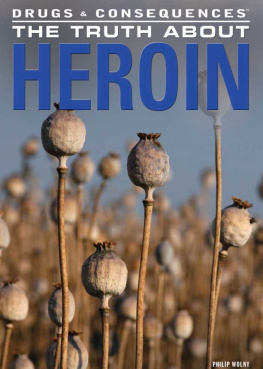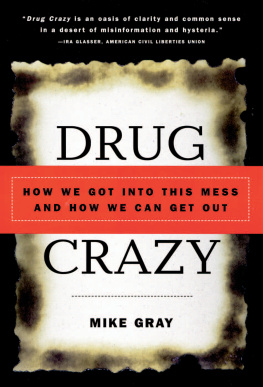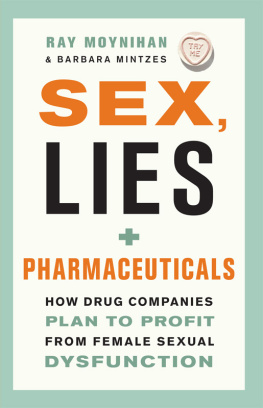First published in Great Britain in 2015 by
Policy Press University of Bristol 1-9 Old Park Hill Bristol BS2 8BB UK Tel +44 (0)117 954 5940 e-mail
North American office: Policy Press c/o The University of Chicago Press 1427 East 60th Street Chicago, IL 60637, USA t: +1 773 702 7700 f: +1 773-702-9756
Policy Press 2015
British Library Cataloguing in Publication Data
A catalogue record for this book is available from the British Library
Library of Congress Cataloging-in-Publication Data
A catalog record for this book has been requested
ISBN 978-1-8474-2672-7 Hardcover
ISBN 978-1-4473-3446-0 ePub
ISBN 978-1-4473-3447-7 Mobi
The right of Natasha Du Rose to be identified as author of this work has been asserted by her in accordance with the Copyright, Designs and Patents Act 1988.
All rights reserved: no part of this publication may be reproduced, stored in a retrieval system, or transmitted in any form or by any means, electronic, mechanical, photocopying, recording, or otherwise without the prior permission of Policy Press.
The statements and opinions contained within this publication are solely those of the author and not of the University of Bristol or Policy Press. The University of Bristol and Policy Press disclaim responsibility for any injury to persons or property resulting from any material published in this publication.
Policy Press works to counter discrimination on grounds of gender, race, disability, age and sexuality.
Cover design by Policy Press
Front cover image: Vassiliki Koutsothanasi
Readers Guide
This book has been optimised for PDA.
Tables may have been presented to accommodate this devices limitations.
Image presentation is limited by this devices limitations.
This book is about the ways in which the governance of illicit drug use shapes female users lives. It examines how women drug users subjectivities, and hence their experiences, are shaped and regulated by drug policies. The construction of female users subjectivities in policy discourse and the impact the characteristics ascribed to them has on these womens experiences are explored. The insights are based on in-depth accounts from the perspectives of women users themselves. It is argued that in the regulation of illicit drug-using women, particular subjectivities are constructed which, in themselves, become part of the narrative sustaining women in their problematic drug use. It is suggested that women users experience drug policy as something that exacerbates their social and economic marginalisation, and contributes to their lives being plunged into further poverty, social and economic marginalisation.
At the same time, the book analyses the contradictory choices, adaptations and resistances of female users. Although women users internalise many of the negative constructions of themselves found in policy discourse, they also find ways to resist them. Their resistances are explored through an examination of the pleasurable and painful aspects of the womens drug use; drug use as a means of escape from oppressive social circumstances; the social inclusion and belonging found in marginalisation; the agency, rationality and control wielded in the face of chaos; and the womens responses to the negative impacts of the treatment, welfare and criminal justice systems. In this process, I subvert popular misconceptions of women users that condition oppressive interventions, and hope to contribute to the formulation of drug policies based on empowerment, gender equity and social justice.
The rest of this chapter discusses the main theoretical schools of thought informing the arguments in the book, including feminist sociological perspectives, the work of Foucault on government, power and the subject, criminological and sociological theories of drug use, drug policy and the social order. Finally, it provides an outline of the books contents.
Governing mentalities
The main concepts and arguments in this book draw on the theoretical works of Foucault and the concept of governmentality, in particular, the art of government (Foucault, 2002 [1978], p 201). This refers to the mentalities, techniques and procedures for managing the habits of subjects. Governmentality is concerned with ways of thinking (rationalities) and ways of doing (technologies). These governing mentalities and tactics are deployed not only by the state, but also by a whole variety of authorities, including the individual subject, in practices of self-regulation. The adoption of a governmentality approach is thus a fruitful way of opening up the terrain and experience of policy for analysis.
The concept of governmentality is used not only as a critical tool, but also as a way of seeing and understanding how womens illicit drug use has been governed. It facilitates an understanding of government not simply as the management of a given set of social issues, but as a process through which particular phenomena come to be identified as social problems and targeted for intervention. It allows questions to be asked concerning how women users are governed, or more specifically, how female users as objects of government are constructed, and what rationalities condition these constructions. In this respect, the problem of womens illicit drug use is understood as a realm brought into existence by government itself. The governmentality approach is compatible with critical strands in the drug debate, within which the war on drugs is viewed as not actually founded in scientific knowledge about the dangerousness of drugs. Rather, it is viewed as originating in colonialism, imperialism, the control of immigrants, Christian morality and the moral regulation of female sexuality (Boyd, 2004). The problem of womens drug use within this framework can be seen as not to do with individual, pathological behaviour, but as rooted in a war that has been waged on them. This framework can also, of course, be used to understand mens illicit drug use (see A feminist sociological perspective, p 7-8).
Political power is not understood as emanating simply from the actions of the state and its agencies (Rose and Miller, 1992, Rose, 1996). The state is just one instrument of government (Carrington, 1993, p xv). The governmentality approach draws attention to the diversity of forces that, in heterogeneous ways, seek to shape, guide, correct and modify the behaviour of female illicit drug users. The art of government involves non-state agencies such as the family, the school and the workplace, as well as state agencies such as the criminal justice system and the medical profession. It is not concentrated in the state apparatus, but is dispersed through a multitude of locales and authorities (Garland, 1999). These include:











